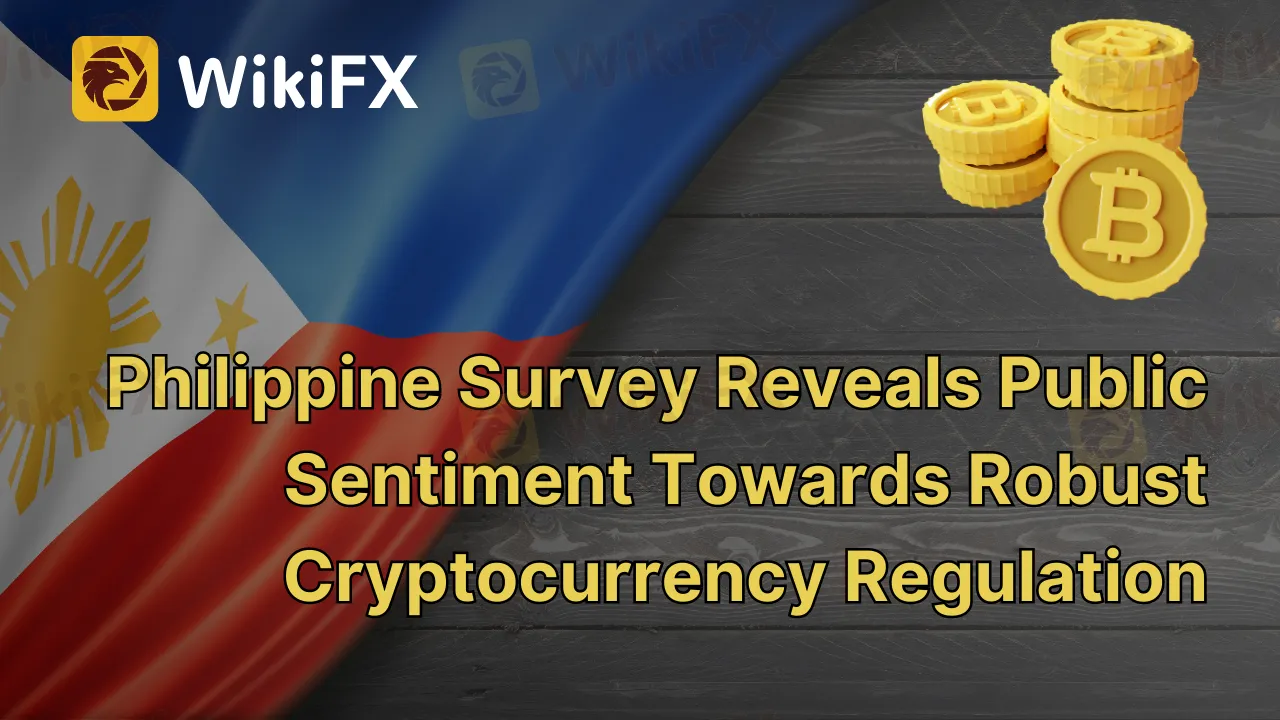简体中文
繁體中文
English
Pусский
日本語
ภาษาไทย
Tiếng Việt
Bahasa Indonesia
Español
हिन्दी
Filippiiniläinen
Français
Deutsch
Português
Türkçe
한국어
العربية
Philippine Survey Reveals Public Sentiment Towards Robust Cryptocurrency Regulation
Abstract:Discover insights from a ConsenSys survey revealing that over 51% of Filipinos support robust cryptocurrency regulation to protect markets and investors.

A recent survey by Ethereum firm ConsenSys has highlighted that over half (51%) of Filipinos strongly believe in the necessity of robust regulation for cryptocurrencies. This sentiment comes from the perceived need to safeguard traditional financial markets and ensure investor protection.
Public Opinion on Crypto and Regulation
The survey, conducted by the international data and analytics group, YouGov, reached out to Filipinos between the ages of 18 and 65 years to gather their opinions on cryptocurrency regulation. Of the majority advocating for regulation, 34% emphasized the importance of regulators establishing rules to promote responsible engagement in cryptocurrencies while ensuring investor protection.
A smaller group of respondents, 5%, expressed a contrary view, asserting that regulators should refrain from controlling cryptocurrency, thus allowing the industry to self-regulate. An additional 11% were uncertain, expressing a “don't know” stance toward the issue.
Additional Opinions on Cryptocurrency
According to research by WikiFX, 47% of the respondents viewed cryptocurrencies as the future of money. Further, 38% considered cryptocurrencies a promising alternative to traditional financial systems. The survey also reflected a growing recognition of the concept of digital ownership, with 35% of respondents acknowledging its importance.
Interestingly, more than half of the respondents (52%) perceived cryptocurrencies as environmentally friendly technology. Other opinions varied: 9% considered crypto as not environmentally friendly and believed it never would be; 17% felt that while crypto currently isn't environmentally friendly, it is improving; the remaining 22% were uncertain.
Cryptocurrency Regulation in the Philippines
In the absence of specific cryptocurrency legislation in the Philippines, existing rules and regulations are used to monitor and oversee the crypto landscape. These include the Virtual Asset Service Providers (VASP) license issued by the Bangko Sentral ng Pilipinas, which allows firms to legally handle exchanges of virtual assets and fiat cash. Furthermore, the Securities and Exchange Commission (SEC) gives jurisdiction to monitor and regulate exchanges, clearing agencies, and self-regulatory organizations under the Securities and Regulation Code (SRC).
Last year, both the central bank and the SEC urged legislators to write laws addressing digital assets such as cryptocurrencies and non-fungible tokens (NFTs). In March, SEC Commissioner Kelvin Lester Lee revealed that a regulatory framework for crypto was being drafted, although this was postponed due to the FTX collapse. To date, there has been no update on the progress of these regulations.
In May, Financial Stability Board (FSB) Chairman Klaas Knot revealed intentions to create a worldwide regulatory framework for cryptocurrency assets. The aim is to provide guidance to relevant entities by leveraging standard-setting bodies in banking, insurance, and securities regulations.
To stay updated on the latest news, download and install the WikiFX App on your smartphone. Download the App.
Download link: https://www.wikifx.com/en/download.html

Disclaimer:
The views in this article only represent the author's personal views, and do not constitute investment advice on this platform. This platform does not guarantee the accuracy, completeness and timeliness of the information in the article, and will not be liable for any loss caused by the use of or reliance on the information in the article.
Related broker
Read more

Spread vs Swap: How Can They Affect Your Trading
In forex trading, success is not only about predicting price movements correctly. It also depends on understanding the costs involved. Two of the most important charges that every trader should factor in are the spread and the swap. These are key components of the overall forex trading fee charged by brokers, and both can have a direct impact on the outcome of a trade.

What is a Cent Account? Definition and Explanation
Learn what a Cent Account is, how it works in Forex trading, and why it's an ideal option for beginners. Compare Cent Accounts with Standard and Micro accounts.

Bitget Lists Caldera for Spot Trading | What Should You Know?
Bitget, a cryptocurrency exchange and Web3 company, has listed Caldera (ERA) for spot trading. Caldera is a rollup platform built on Ethereum. It is designed to allow horizontal scaling and interaction between different rollups.

Trading Other People’s Money | What Prop Firms Don’t Tell You
Proprietary (prop) trading firms have become increasingly popular. They give traders the chance to trade with larger amounts of money without risking their own savings. For many, this sounds like the perfect opportunity to grow faster and earn more. But while the benefits are appealing, there are also risks and hidden rules that traders must understand before joining a prop firm.
WikiFX Broker
Latest News
Top Wall Street analysts recommend these dividend stocks for regular income
Stock futures rise as U.S.-EU trade deal kicks off a hectic week for markets: Live updates
Thailand-Cambodia War Pressures Thai Baht in Forex Market
Treasury yields tick lower as investors look ahead to Fed's interest rate decision
European stocks set to rise after the U.S. and EU strike trade agreement
Samsung Electronics signs $16.5 billion chip-supply contract; shares rise
Does XS.com Hold Leading Forex Regulatory Licenses?
Elon Musk confirms Tesla has signed a $16.5 billion chip contract with Samsung Electronics
Chile Bumps Up Copper Price Forecast and Flags Lagging Collahuasi Output
A breakthrough and a burden? What the U.S.-EU trade deal means for the auto sector
Currency Calculator


